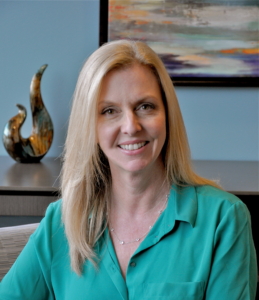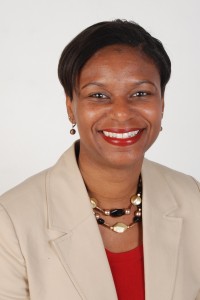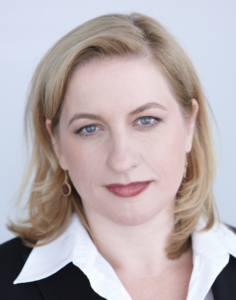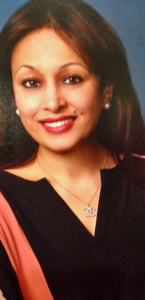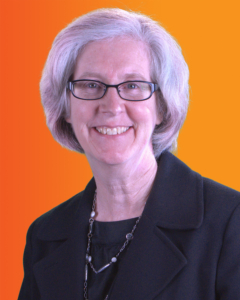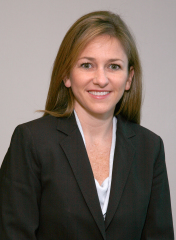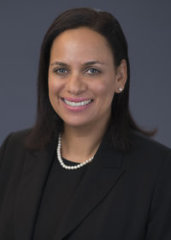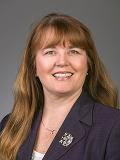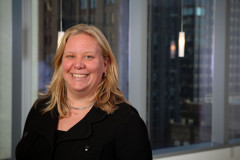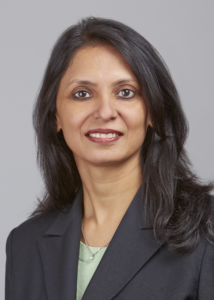 “Even though I was committed to continuing my career after my maternity leave, the first few months were still challenging. So now I proactively connect with other returning women to provide support and encourage retention because I know women can successfully juggle work and a family.”
“Even though I was committed to continuing my career after my maternity leave, the first few months were still challenging. So now I proactively connect with other returning women to provide support and encourage retention because I know women can successfully juggle work and a family.”
Sarita Mohapatra, a tax principal with PwC, talks often about how to balance family life and her busy client schedule.
She’s been with PwC since 2001, becoming a partner in 2010. She initially studied economics in India and after earning her MBA came to the United States. A PhD in Economics followed, and she realized she had a love for teaching and spent four years as a faculty member at Utah State University. She decided she wanted to get back to the corporate world and subsequently moved to the San Francisco Bay Area, seeking a position in professional services that incorporated her background in applied economics. After briefly working at another firm, she joined PwC.
Her work remains constantly fascinating to her, particularly the technological advancements that seem to occur on a daily basis. With changes occurring globally related to transfer pricing and the intersection of economics and tax, she finds herself delving into new areas to identify solutions for her clients who are under lots of pressure to deal with regulatory compliance issues.
Don’t Make a Decision for Your Whole Life Based on Today
She worries that young women walk away from opportunities because they sometimes anticipate difficult situations than may never happen. She says that when she started, there weren’t many structured programs to help working moms. Even though she had no idea how to make it work, she knew she wanted to. She saw her male colleagues who have kids and still work, and she figured there was no reason why she couldn’t do the same.
“I learned that you can’t make a life decision based on the one problem ahead of you that day,” she says, citing child care coverage as an example of an issue that is transient in the big picture of your whole career.
“It’s a blip in your career. In a span of 35 years, it’s not much, but too many women think ‘I can’t be here tomorrow,’ so they walk away from everything today.”
Mohapatra says she took her clients into confidence early on, and set boundaries — for example, that two days of the week she had pick-up duties.
“I was fortunate that I had a lot of support and my colleagues and clients, both male and female, always supported me. Women wonder if it’s possible to have it all, so I try to talk to as many as I can to say, yes, it is possible. Even though everyone’s story will be different, this is how I did it. I really try to be a good role model for working moms because even though I had great support from my mentors, I wish I had more working moms as my role models when I was making those decisions.”
Speak Up To Get the Opportunities You Need
Mohapatra advises women to be outspoken and open about their aspirations. She says that while male candidates will routinely ask how long until they make partner, she’s found very few women will start a discussion to find out their prospects for career advancement potential.
“It’s not that they’re not ambitious — I see that drive and hunger — but they hold back,” she says. “I think they are concerned that I might think they are getting ahead of themselves. I coach my managers and staff constantly that if they want to advance, then they need to tell someone, because speaking up allows managers to give interested people the opportunity to acquire the skills and expertise they need.”
She says she focuses on this through her own experience – she had assumed everyone knew she wanted to make partner, so was surprised when she found out they didn’t. Someone asked if others knew, and she said “I think so! This is why I’m working this hard.” But she found out you can’t assume and went back to amend her career plan with long-term and short-term goals.
And the advice can translate for women she would consider her peers. She says that sometimes even at the higher levels, she still sees women will hold back in meetings and discussions.
She credits her viewpoints with her upbringing in India, when her parents would tell her that to succeed in the corporate sector in India without losing her identity she needed to be proud of who she is and what she brought to the table. “They would say, ‘We don’t want you to emulate men to be successful! Be yourself.’” Those words stick with her as she maintains her authenticity in her career.
Networking for Success
Mohapatra says that when she began in public accounting, there weren’t too many learning and development programs so she tried to build up her network naturally by participating in firm-sponsored events or organizing informal lunches or drinks.
“If I could, I would go back and cast my net a lot wider,” she says. “I tell my team to step outside their comfort zone from immediate coworkers and be more strategic about networking beyond those you meet organically.”
Mohapatra is very engaged in PwC’s Office of Diversity initiatives and recently gave the keynote address on the power of networking at the national convention of Ascend, a Pan-Asian organization with which she is involved locally and nationally.
“I tell my team to step outside their comfort zone from immediate coworkers and be more strategic about networking beyond those you meet organically.”
Family Focus
Mohapatra remembers that one of her partners had suggested she network more outside of business hours, which seemed challenging in light of the many long hours she already put in. But she realized that many of her clients also had kids around the same age so she started planning events that included families. “I realized I had to incorporate both my life and work to make better use of the time I had.”
She carries that double-duty ethos into her community service outreach as well, helping in her son’s school and working with Habitat for Humanity, which she combines into a team-building activity with her staff.
When she’s not working, she enjoys gardening, a hobby that she and her family can do together.
Her family loves to travel, looking for areas off the beaten path to get a true flavor of the culture. Her son, who is 12, has already been to 13 countries. “When people ask him to tell a fun fact about himself he loves to say that he’s been to more countries than he is years old.”
By Cathie Ericson

